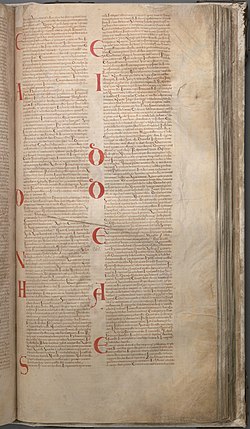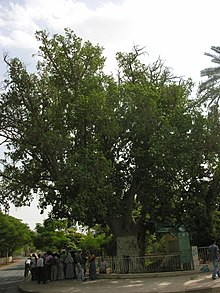Luke 19
[1] The book containing this chapter is anonymous, but early Christian tradition uniformly affirmed that Luke the Evangelist composed this Gospel as well as the Acts of the Apostles.
Zacchaeus (Greek: Ζακχαῖος, Zakchaios; Hebrew: זכי, "pure", "innocent" [4]) of Jericho was wealthy, a chief tax collector, mentioned only in the Gospel of Luke.
A Methodist/Roman Catholic ecumenical document reflects thatZacchaeus, an undeserving figure, is nevertheless graciously accepted by Jesus and drawn into a saving relationship with the Lord, which transforms his previously self-centred and selfish existence into holy living.
On receiving Jesus’ summons, Zacchaeus instantly resolves to make reparation for his sinful past by promising to give half of his possessions to the poor and repay fourfold all whom he had defrauded.
[9] On the downward slope of the Mount of Olives, there is a scene of great rejoicing: The Hebrew word "Hosanna", which appears in the parallel accounts in Matthew and Mark, is not used by Luke.
Anglican churchman Henry Alford suggests that this "general description" of Jesus' engagement in the temple is fittingly located at the end of the chapter which concludes his "last journey to Jerusalem".


